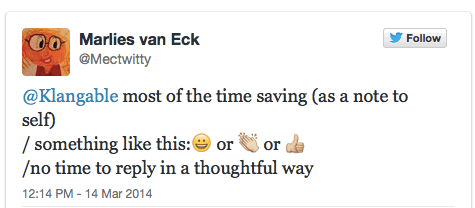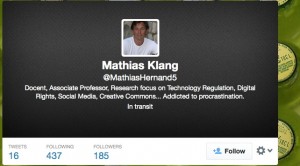It doesn’t happen often but today it happened again. I was suckered into tweeting with someone on Twitter and the endless back and forth began. I recognized it early as baiting but I tried to continue a bit further, explain my views and be polite but clear in my points. I know it’s pointless but I tried.
When I finally had had enough I informed the other that I was stopping and thanked him (?) for the discussion. Predictably he continued to bait me by “calling out” my hypocrisy. I was going to reply (I know, I know – don’t feed the trolls). But I stopped myself and I checked his profile.
It was – unsurprisingly – yet another anonymous account. Active but unnamed. Nothing in the user name or the profile gave any clue about a real identity.
I am all for anonymity and psuedonymity online. And given the right circumstances I would have not minded a discussion. But when I attempt to politely withdraw and my interlocutor is both anonymous, persistent, and baiting. I get the impression its a troll. So I have created a rule for myself. If I am arguing with an anonymous person on Twitter and they will not let me leave the argument – then it is OK to block them.
While it is perfectly OK to be anonymous online. It is also OK for me not to invest my time and energy in someone who is anonymous and disrespectful of my time and opinions. We do not have to agree, but we do have to be respectful. In particular respect is important if you are attempting anonymity.
So far I have only blocked three accounts on Twitter based on these principles. And still it makes me feel like I am doing something wrong by preventing the free flow of discussion. But there is a time when arguing with anonymous accounts must stop. It’s just not fruitful.




